Pedigree sales in autumn 2019 went better than expected for most breeds, with the addition of some high-profile production and clearance sales adding to the success encountered across many sales.
Despite uncertainty around the Brexit deal, UK and Northern buyers continued to flock to elite sales to search of the top-end lots. Although it proved to be a tough year for beef prices, Irish pedigree breeders, and indeed commercial farmers, continued to invest.
Looking over the averages and clearance rates of pedigree beef breed society sales, a lot of breeds saw an increase on the year, with clearance rates also seeing a boost.
However, it must be noted that some breeds only saw in increase in the clearance rate due to a smaller number of bulls being put forward for sale.
This is definitely a positive move from societies to ensure a higher demand for bulls. Only the best of the best should be forward at these sales. Vigorous inspections for sales with large entries and the breed’s demand at that time of year are key to keeping the sales achieving top prices and high clearance rates.
In a lot of cases, these sales stand as the benchmark for the following spring, so averages need to be maintained as high as possible.
We are in a scenario where the national pedigree beef herd continues to grow, while the national suckler herd continues to decline.
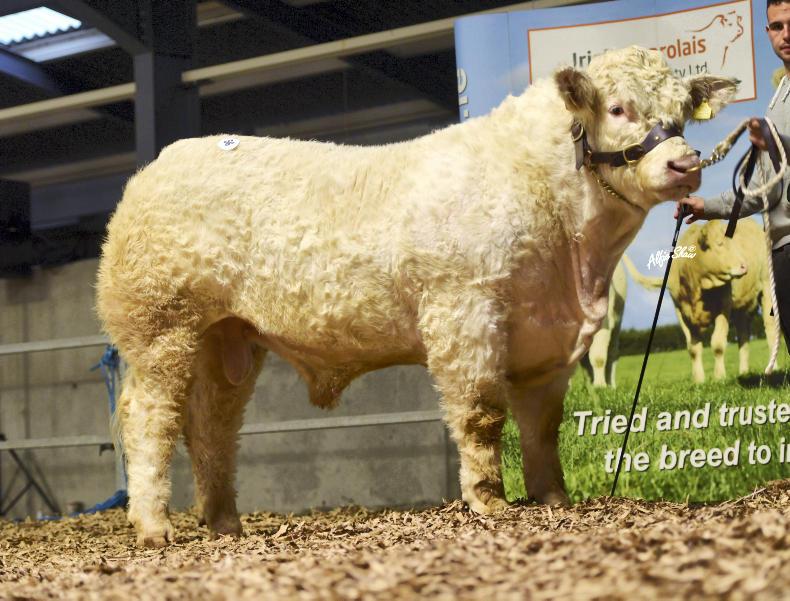
Top-priced bull of 2019 Bud Orpheus, which sold to Dovea Genetics for €11,500. \ Alfie Shaw
In layman’s terms, a higher number of bulls are being offered for a smaller market.
Breeds which have export available to them should utilise it to the best of their ability. On the same note, for bulls failing to meet a certain standard, breeders need to stand up and acknowledge that their only destination is to the factory for beef rather than carrying through to breeding solely because they have a pedigree cert.
Especially in a year like we have had with regard to beef prices, breeders need to remember this is not a reason to sell pedigree bulls at a lesser price.
The Irish Farmers Journal has highlighted before the cost of getting a pedigree bull to a sale to be in excess of €2,300, if not higher.
Bulls hitting this price on sale day are leaving no profit for the breeder and those failing to meet it are in negative equity. Bulls run commercially and killed at commercial prices at younger ages, even with a low beef price, a lot of the time can lead to a more profitable enterprise.
Data from the ICBF shows that the number of beef-sired calves from the dairy herd has nearly doubled. There is a market for extra bulls to meet this market compared with four years ago.
However, the breeds primarily associated with the dairy herd have already fulfilled this demand, growing their breed substantially in the previous years.
Looking at the Angus and Hereford breeds, we see that their pedigree populations have increased by 50% over the past five years.
Exports
The strong pedigree export market that Ireland has built up through the years remained steady in 2019. This market was much talked about in the runup to autumn sales, given the uncertainty surrounding a Brexit deal.
However, buyers continued to invest in the best of Irish genetics due to the quality the national pedigree herd possesses, combined with a high standard of animal health.
The Charolais breed maintained its high export market, with over 30% of lots exported from its Christmas Cracker.
The Angus breed saw a renewed interest from Scottish buyers, who obtained a number of the top selling lots. This market hasn’t been seen for a good number of years.
The Simmental, Hereford and Belgian Blue breeds had a number of major production and clearance sales, which saw, in some cases, the majority of sale-toppers heading north or to the UK.
Female trade overall, and with the help of these specialised sales, can be looked upon positively, with a number of high-end prices across the board. Across all sales, it was clear to see that top-quality female lots continued to demand higher prices.
Breeds in brief
Angus males saw their highest average in four years, with the clearance rate increasing by 10% on the year. However, females were back from the super 2018 sale witnessed last year.Charolais bulls witnessed a great trade at the Christmas Cracker, with both average price and clearance rate up, while the female sale the previous month saw a top of €11,000, but the average price and clearance rate were slightly back.Simmental bulls were up €300 on the year, with the clearance rate also increasing. However, the Simmental females rose by just shy of €1,200, with a very healthy clearance of 82%. This was helped greatly by three draft sales which topped at €18,000.Limousin bulls were back the most on the year, but much of this can be attributed to last year’s sale featuring a €38,000 bull. That said, trade still seemed trickier than most throughout the autumn.Belgian Blue bulls lacked the export buyers seen at the 2018 sale. However, female trade increased well due to the production sale of the Rathlyon herd at the premier.The Hereford premier proved very tough, with the clearance rate for both males and females very low. That said, as previously mentioned, the breed had a number of high-end production and clearance sales, which generated a lot of attention and secured a number of very high prices for the breed.The Shorthorn and Aubrac breeds have remained static over the last few years.As mentioned, 2019 sales can be described as better than expected, but pedigree breeders have no time to dwell on it, as the 2020 spring sales are just around the corner.
Pedigree sales in autumn 2019 went better than expected for most breeds, with the addition of some high-profile production and clearance sales adding to the success encountered across many sales.
Despite uncertainty around the Brexit deal, UK and Northern buyers continued to flock to elite sales to search of the top-end lots. Although it proved to be a tough year for beef prices, Irish pedigree breeders, and indeed commercial farmers, continued to invest.
Looking over the averages and clearance rates of pedigree beef breed society sales, a lot of breeds saw an increase on the year, with clearance rates also seeing a boost.
However, it must be noted that some breeds only saw in increase in the clearance rate due to a smaller number of bulls being put forward for sale.
This is definitely a positive move from societies to ensure a higher demand for bulls. Only the best of the best should be forward at these sales. Vigorous inspections for sales with large entries and the breed’s demand at that time of year are key to keeping the sales achieving top prices and high clearance rates.
In a lot of cases, these sales stand as the benchmark for the following spring, so averages need to be maintained as high as possible.
We are in a scenario where the national pedigree beef herd continues to grow, while the national suckler herd continues to decline.

Top-priced bull of 2019 Bud Orpheus, which sold to Dovea Genetics for €11,500. \ Alfie Shaw
In layman’s terms, a higher number of bulls are being offered for a smaller market.
Breeds which have export available to them should utilise it to the best of their ability. On the same note, for bulls failing to meet a certain standard, breeders need to stand up and acknowledge that their only destination is to the factory for beef rather than carrying through to breeding solely because they have a pedigree cert.
Especially in a year like we have had with regard to beef prices, breeders need to remember this is not a reason to sell pedigree bulls at a lesser price.
The Irish Farmers Journal has highlighted before the cost of getting a pedigree bull to a sale to be in excess of €2,300, if not higher.
Bulls hitting this price on sale day are leaving no profit for the breeder and those failing to meet it are in negative equity. Bulls run commercially and killed at commercial prices at younger ages, even with a low beef price, a lot of the time can lead to a more profitable enterprise.
Data from the ICBF shows that the number of beef-sired calves from the dairy herd has nearly doubled. There is a market for extra bulls to meet this market compared with four years ago.
However, the breeds primarily associated with the dairy herd have already fulfilled this demand, growing their breed substantially in the previous years.
Looking at the Angus and Hereford breeds, we see that their pedigree populations have increased by 50% over the past five years.
Exports
The strong pedigree export market that Ireland has built up through the years remained steady in 2019. This market was much talked about in the runup to autumn sales, given the uncertainty surrounding a Brexit deal.
However, buyers continued to invest in the best of Irish genetics due to the quality the national pedigree herd possesses, combined with a high standard of animal health.
The Charolais breed maintained its high export market, with over 30% of lots exported from its Christmas Cracker.
The Angus breed saw a renewed interest from Scottish buyers, who obtained a number of the top selling lots. This market hasn’t been seen for a good number of years.
The Simmental, Hereford and Belgian Blue breeds had a number of major production and clearance sales, which saw, in some cases, the majority of sale-toppers heading north or to the UK.
Female trade overall, and with the help of these specialised sales, can be looked upon positively, with a number of high-end prices across the board. Across all sales, it was clear to see that top-quality female lots continued to demand higher prices.
Breeds in brief
Angus males saw their highest average in four years, with the clearance rate increasing by 10% on the year. However, females were back from the super 2018 sale witnessed last year.Charolais bulls witnessed a great trade at the Christmas Cracker, with both average price and clearance rate up, while the female sale the previous month saw a top of €11,000, but the average price and clearance rate were slightly back.Simmental bulls were up €300 on the year, with the clearance rate also increasing. However, the Simmental females rose by just shy of €1,200, with a very healthy clearance of 82%. This was helped greatly by three draft sales which topped at €18,000.Limousin bulls were back the most on the year, but much of this can be attributed to last year’s sale featuring a €38,000 bull. That said, trade still seemed trickier than most throughout the autumn.Belgian Blue bulls lacked the export buyers seen at the 2018 sale. However, female trade increased well due to the production sale of the Rathlyon herd at the premier.The Hereford premier proved very tough, with the clearance rate for both males and females very low. That said, as previously mentioned, the breed had a number of high-end production and clearance sales, which generated a lot of attention and secured a number of very high prices for the breed.The Shorthorn and Aubrac breeds have remained static over the last few years.As mentioned, 2019 sales can be described as better than expected, but pedigree breeders have no time to dwell on it, as the 2020 spring sales are just around the corner.





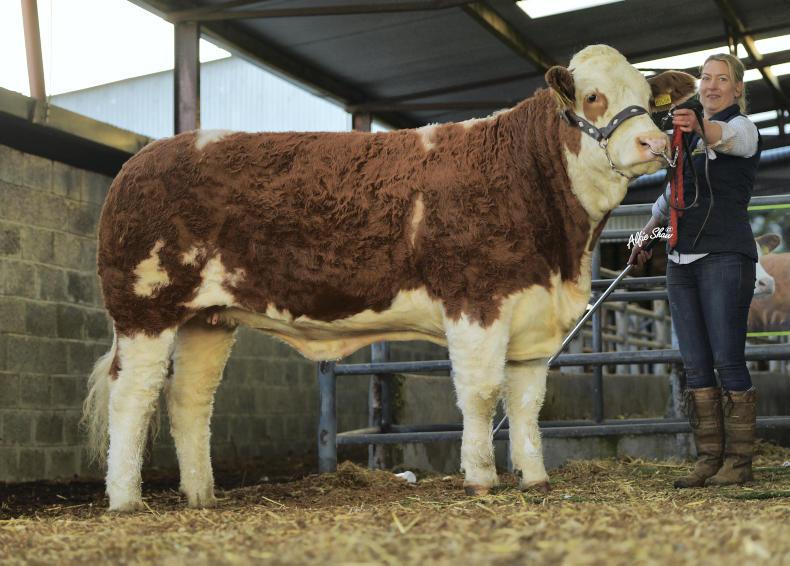
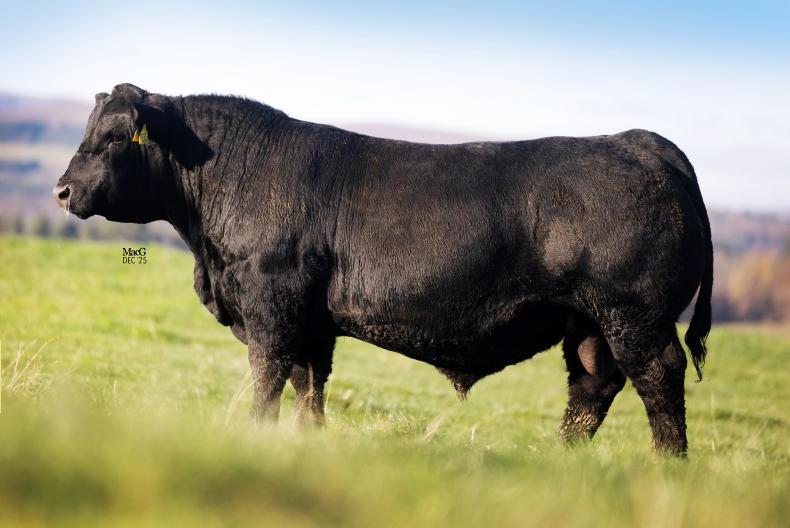
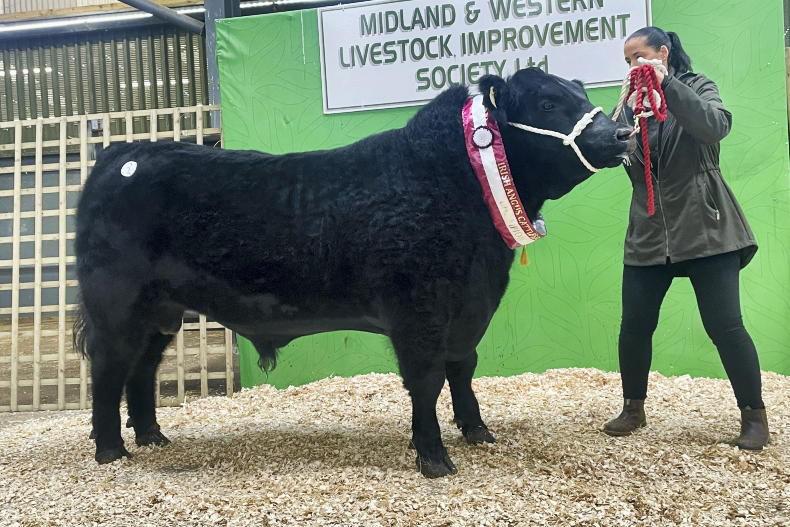
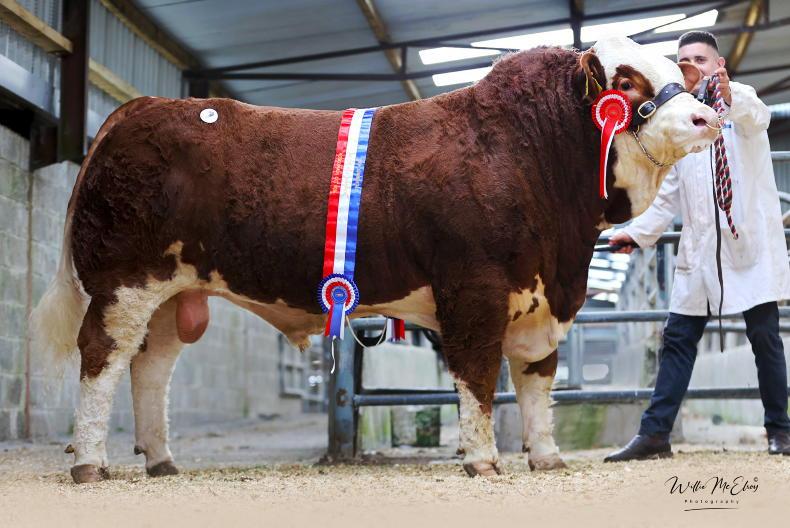
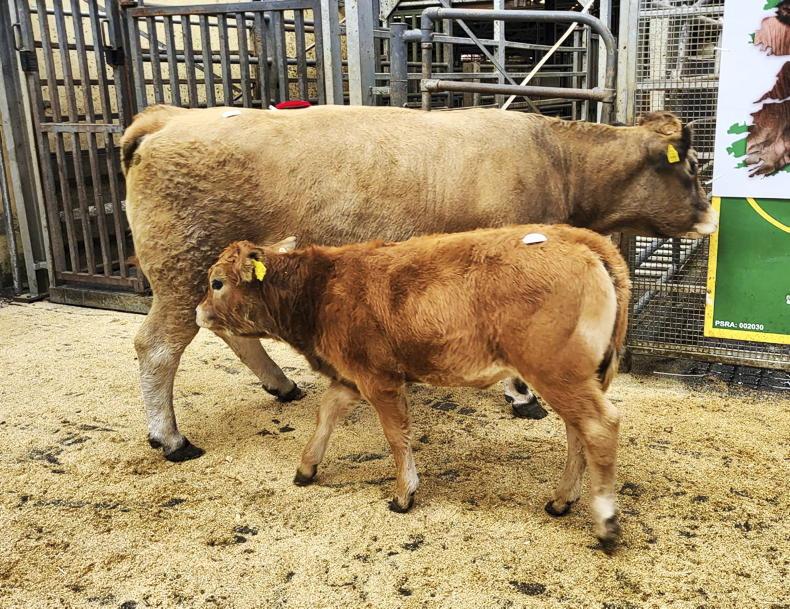
SHARING OPTIONS